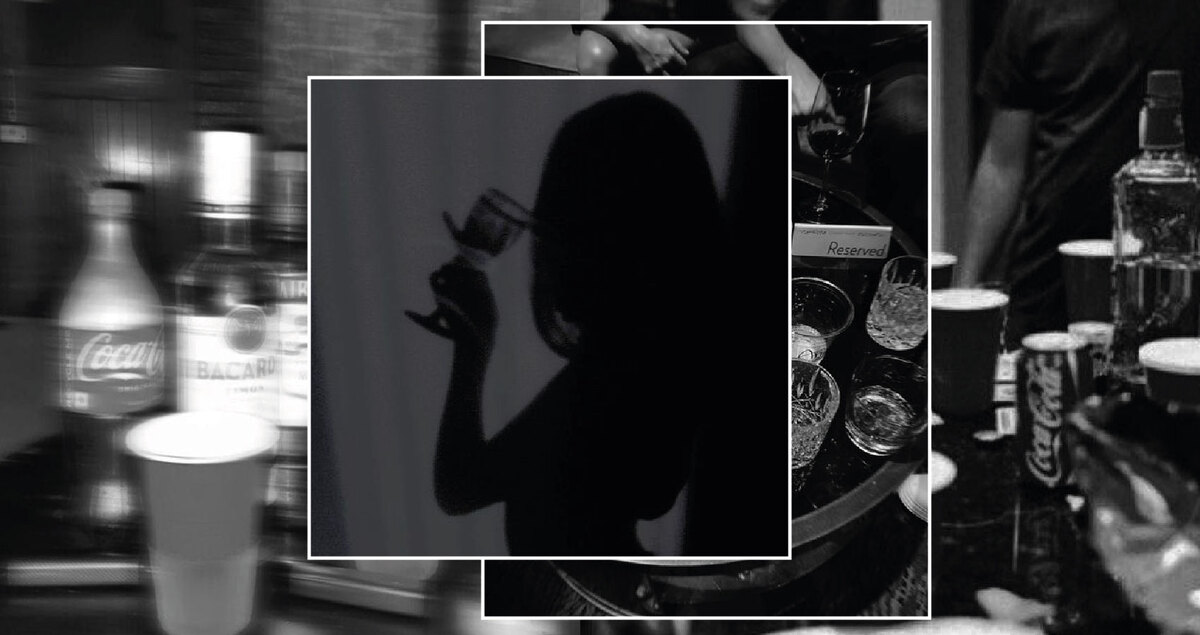
How To Quit Drinking Alcohol For Good
Your guide to quitting alcohol and embracing a sober life.
Quitting alcohol can be a significant and life-changing decision, yet it can also be one of the most challenging journeys a person may face. Whether it’s the desire to improve health, regain control over one's life, or break free from addiction, choosing to stop drinking requires determination, support, and a comprehensive plan. Fortunately, various resources, tools, and strategies can assist individuals in achieving sobriety and maintaining it for the long term.
Read on to learn how to quit drinking alcohol for good.
Understanding Alcohol Addiction
Before embarking on the path to sobriety, it’s essential to understand what alcohol addiction is and how it develops. Alcohol addiction, also known as alcoholism or alcohol use disorder, is a medical condition characterized by the inability to control one’s drinking habits despite the negative consequences it may cause. It’s important to recognize that addiction isn’t merely a matter of willpower—it’s a complex condition that can result from a combination of genetic, environmental, and psychological factors.

Furthermore, alcoholism can have a profound impact on both physical and mental health, as well as relationships and work life. Over time, an individual’s tolerance to alcohol increases, leading them to consume more to achieve the same effects. This pattern of behavior, along with the physical dependence on alcohol, can create a vicious cycle that becomes increasingly difficult to break.
Thankfully, many individuals struggling with alcohol addiction find that seeking professional help is crucial. For instance, checking out resources on alcohol addiction treatment can be an excellent start. They offer specialized programs to guide individuals through the complexities of withdrawal, recovery, and relapse prevention.
Remember, the importance of support and a structured approach can’t be overstated, as it provides individuals with the necessary tools to succeed in their sobriety journey.
The Road to Sobriety: Steps for Quitting Alcohol
Embarking on the journey to quit drinking involves several key steps. While each person’s experience will be unique, the following guidelines can help create a solid foundation for those determined to make lasting changes:
Acknowledge the Problem
The first step to overcoming alcohol addiction is acknowledging the problem. Denial can be a significant barrier to recovery, as individuals often minimize or rationalize their drinking. It’s important to be honest with oneself and recognize the toll alcohol is taking on one’s health, relationships, and overall quality of life.
Seeking an objective perspective from a trusted friend, family member, or professional can also provide valuable insights into the severity of the addiction. Recognizing the need for change is an empowering step that sets the stage for taking proactive measures toward recovery.
Set Clear Goals and Intentions
When deciding to quit drinking, setting clear and achievable goals is essential. Whether the goal is to reduce alcohol intake gradually or to quit drinking entirely, establishing a roadmap for success can help maintain focus and motivation. Short-term and long-term goals can include measures like staying sober for a week, a month, or longer.
While it’s important to be realistic, setting a clear intention to live a sober life provides individuals with a sense of purpose. These goals can be reassessed periodically as progress is made, allowing for adjustments if necessary. Writing down goals and tracking progress can also help reinforce commitment and accountability.
Seek Professional Support
Quitting alcohol for good is often best achieved with the support of professionals, such as counselors, therapists, or rehabilitation centers. Seeking out a treatment program tailored to individual needs can significantly improve the chances of long-term recovery.

Programs that offer both inpatient and outpatient treatment options can help individuals manage withdrawal symptoms, gain insights into the root causes of their addiction, and learn strategies to prevent relapse. Personalized therapy, group therapy, and support groups can provide invaluable emotional and psychological support during the recovery process.
Build a Support System
Surrounding oneself with a solid support system is vital to maintaining sobriety. This system can include family, friends, healthcare professionals, and support groups. Having individuals who understand the challenges of recovery can provide encouragement, advice, and motivation when it’s needed most.
Support groups offer a sense of camaraderie and shared experience. These groups allow individuals to connect with others who are going through similar challenges, making it easier to relate and feel understood. Online forums and virtual support groups are also widely available for those who may not have local options.
Detox and Manage Withdrawal
For individuals with a long-standing alcohol addiction, detoxification may be necessary before proceeding with the recovery process. Alcohol withdrawal can be dangerous, with symptoms ranging from mild to severe. These can include anxiety, tremors, nausea, seizures, and even delirium tremens in extreme cases.
Detoxing under the supervision of a medical professional ensures safety and comfort, with access to medications that can help alleviate withdrawal symptoms. A detox program is typically the first step in a comprehensive recovery plan, followed by therapy and support.
Develop Healthy Coping Mechanisms
One of the most critical aspects of long-term sobriety is developing healthy coping mechanisms to deal with stress, anxiety, and triggers that may have contributed to alcohol use in the past. Stress is a common trigger for many individuals struggling with alcohol addiction, so learning to manage stress in healthy ways is vital.
Incorporating activities like exercise, mindfulness, meditation, journaling, or creative outlets into daily life can also reduce the urge to drink and promote overall well-being. Practicing relaxation techniques or engaging in hobbies that foster relaxation, and joy can be incredibly beneficial in the early stages of sobriety.
Avoid Triggers and High-Risk Situations
For many individuals, certain environments, social circles, or situations can trigger the urge to drink. Avoiding these high-risk scenarios is an essential part of recovery. For example, individuals may need to limit their exposure to parties, bars, or social events where alcohol is present.
It may also be helpful to avoid specific people or places that have previously been associated with drinking. By identifying and avoiding triggers, individuals can minimize the temptation to relapse and maintain their commitment to sobriety.
Take Care of Physical and Mental Health
Sobriety isn’t just about quitting alcohol—it’s about improving overall physical and mental health. During the recovery process, it’s essential to prioritize self-care, including maintaining a balanced diet, getting regular exercise, and ensuring adequate sleep.

Additionally, taking care of mental health is equally important. Many individuals struggling with alcohol addiction also deals with underlying mental health conditions, such as depression or anxiety. Treating these conditions through therapy or medication can provide essential support during recovery and reduce the risk of relapse.
Embrace the Journey of Self-Discovery
Quitting alcohol is often a transformative journey of self-discovery. For many, sobriety offers the opportunity to reassess life priorities, discover new passions, and redefine goals. It’s essential to embrace the changes that come with sobriety and to view this period as a fresh start.
Recovery is a process, and it’s essential to be patient with oneself. Embracing personal growth, setting new goals, and discovering what truly brings joy and fulfillment can also lead to a more meaningful and satisfying life.
Quitting Alcohol Timeline: What to Expect on the Journey to Sobriety
The timeline for quitting alcohol can vary significantly from person to person, as everyone’s body, mental state, and drinking habits are different. However, understanding the general stages and what to expect during the recovery process can help individuals stay motivated and prepared as they work toward lasting sobriety.
Here’s the general timeline for quitting alcohol:
First 24-72 Hours: Withdrawal Symptoms
The initial phase of quitting alcohol typically begins within hours of the last drink. For many people, withdrawal symptoms may start to appear within the first 6 to 12 hours. Symptoms can include anxiety, irritability, headaches, fatigue, nausea, and sweating. In more severe cases, individuals may experience tremors, hallucinations, or seizures, particularly if they’ve been drinking heavily for a long time.

During the first 72 hours, the body begins to detoxify as alcohol is processed out of the system. This period can be challenging, but it’s crucial to stay hydrated, eat nutritious foods, and seek medical assistance if necessary. Detoxing under the supervision of a healthcare professional can also ensure safety and reduce discomfort, especially for those with a history of heavy drinking.
First Week: Physical and Emotional Adjustment
After the first few days, withdrawal symptoms typically begin to subside. By the end of the first week, many individuals start to notice physical improvements, such as better sleep, more energy, and clearer skin. Mentally, however, this period can still be tough. Cravings for alcohol may persist, and emotional lows or mood swings are common as the brain adjusts to functioning without alcohol.
This is a critical time for building healthy habits and coping mechanisms, such as engaging in regular physical activity, practicing relaxation techniques, or seeking support from therapy or support groups. A strong support system can make a significant difference during this phase.
First Month: Mental Clarity and Stabilization
By the end of the first month of sobriety, most people notice substantial improvements in both physical and mental health. Energy levels tend to rise, sleep quality improves, and mental clarity increases. Anxiety or depression symptoms, if present, may begin to stabilize as the brain chemistry adjusts to the absence of alcohol.

For many, this period marks the point where they feel more in control of their lives and better able to manage stress without resorting to alcohol. It’s important to keep setting achievable goals during this phase and celebrate small wins along the way.
3 to 6 Months: Strengthened Resilience and Long-Term Benefits
As sobriety continues for three to six months, individuals typically experience even greater emotional and physical benefits. The risk of relapse decreases as new habits and coping strategies become more ingrained. Many people find that they’ve improved relationships, better job performance, and a renewed sense of purpose.
For those who have been dependent on alcohol, the cravings and triggers may still appear occasionally, but with time and continued support, the resilience to stay sober strengthens.
One Year and Beyond: New Lifestyle and Personal Growth
By the one-year mark, the body has largely recovered from the damage caused by alcohol, and the individual has had ample time to adapt to a new, sober lifestyle. Most people find that they’re much more confident in their ability to maintain sobriety, and the positive changes in their health, relationships, and overall well-being are evident.

While the journey to sobriety can be long and filled with challenges, understanding the quitting alcohol timeline can help individuals anticipate the changes they will undergo. Staying committed, seeking professional support when needed, and focusing on personal growth are key factors that ensure success in the long run.
Conclusion
Achieving sobriety and quitting alcohol for good is a long-term commitment, and maintaining it requires ongoing effort, support, and resilience. By following the steps outlined in this guide and remaining dedicated to one’s recovery, individuals can build a future free from alcohol dependency. While the journey may be difficult at times, the rewards of sobriety—improved health, better relationships, and a renewed sense of self—are well worth the effort.













